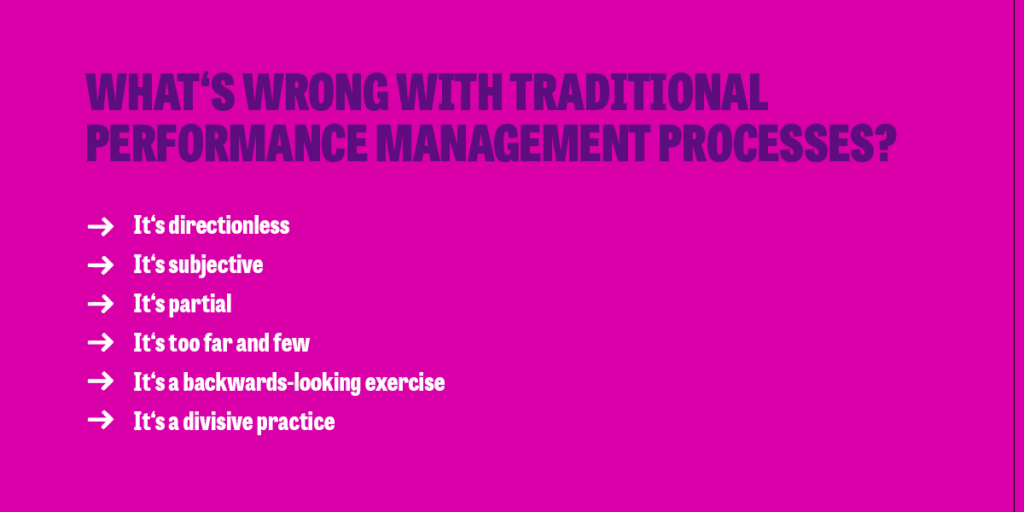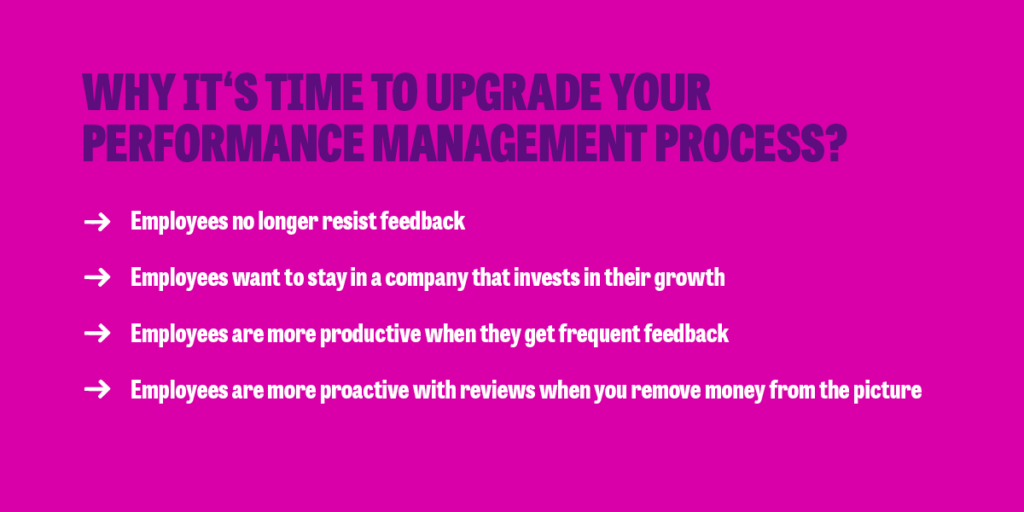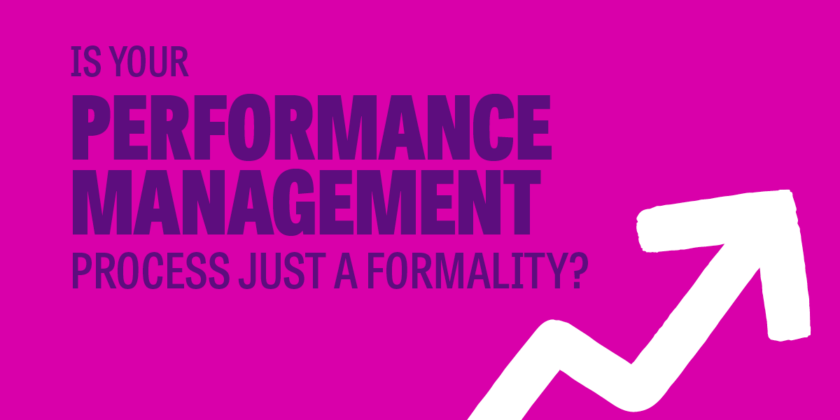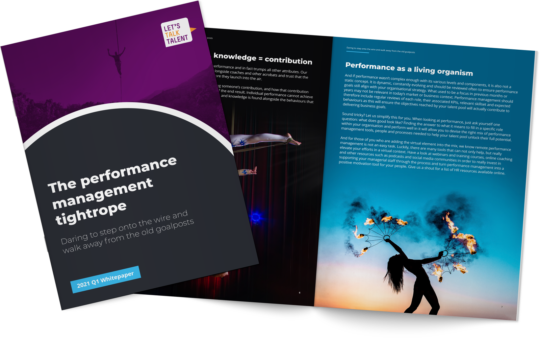I have been part of 8 performance review cycles. I stepped into the first one with high hopes as a fresher. But soon, I understood how all these reviews are tightly coupled with appraisals, budgets and company performance (and not always mine).
I was still looking at it as a chance to improve, though. In one cycle, I did everything right (as per my understanding) to get a 5 rating. I received emails with good feedback. Ultimately, I got a 4 rating and feedback in the review form: “You didn’t work on any automation“. But I never knew automation was an expectation.
The following year I worked on automation but again got a 4 rating. I forced my manager to have a one-on-one meeting this time. He, in general, used to dodge giving any negative feedback. I came out of the meeting with no idea where I could improve and what goals to set for the next year. I was stuck on a 4 rating for years. I finally bid the corporate world goodbye and never got a clear answer of what exactly it needed to move from 4 to 5 stars. The entire process felt like a formality – a yearly task on everyone’s to-do list.
This is how employees feel when following a traditional performance management process. Unheard and confused.
Why does it happen? To understand the issue further and find out how to solve it, we will discuss:
What’s wrong with the traditional performance management processes?

1. It’s directionless
Traditional processes do not mandate frequent check-ins or goal setting. Betterworks Global HR study found:
- 16% of employees do not set goals at all.
- 21% of employees set their goals yearly. And 48% of these employees feel trapped in these out-of-date yearly goals within a quarter itself.
This lack of clarity or conviction towards their own goals almost takes away the sense of direction on where to head for an employee.
2. It’s subjective
Traditional performance reviews are often tied to an annual appraisal/compensation — one of the top 10 performance management review mistakes. It makes the entire process subjective as appraisal budgets depend on company performance, market and economy.
It makes it tough for employees to do honest self-reviews when they know it directly affects their compensation. The entire process gets skewed.
Jo Taylor, MD of Let’s Talk Talent, says, “When you bundle performance reviews and pay discussions, any negative feedback will undo all the positive things you discussed. People will keep linking the discussion to pay.“
Managers also have to fit the rating into the budget. Every extra star means an extra slice of the budget. The focus shifts from employee performance to so many other factors.
3. It’s partial
As goal setting is not a collaborative exercise, the steering wheel of the entire process is in the manager’s hands. Further, there are no standard expectations based on every role, so different managers have their own opinions on how things should be done. There are a lot of loopholes for individual biases to creep in. As a result, two-thirds of employees believe they are not fairly evaluated.
4. It’s too far and few
A year is quite a lot to leave employees without feedback, especially when business priorities (and individual career aspirations) change from time to time. Employees also no longer hesitate to get feedback. 75% of employees feel they want more frequent feedback on how to improve.
5. It’s a backwards-looking exercise
Jo further highlights, “Traditional reviews concentrate on rewarding the highest performers so far, whereas the focus should be on learning and development in the future“.
The process gets stuck in the past and many key questions go unanswered like:
What does growth look like in the next year?
What does it take to move from 4 to 5?
The next step remains unknown.
6. It’s a divisive practice
The rating-driven annual review process creates a class of high and low performers. It can easily become a point of comparison and prevent employees from focusing on their growth.
Why put employees in boxes and place labels on them? Jo asks.
What do employees want? The future of performance management
PWC did a study on the Future of Performance Management and this is what the new normal of performance management will look like:
- Shorter review cycles
- Continuous dialogue
- All-round evaluation
- Transparent process
Let’s look at each one in detail.
1. Shorter review cycles
Annual reviews are not helpful anymore. Employees expect shorter cycles with agile goals. But let’s not forget every review cycle comes with some overhead tasks. Then, what type of cycle would work best for your organisation? We can help you figure that out.
2. Continuous dialogue
Managers are now expected to meet employees regularly and give actionable feedback. Richard Sinclair MBE, Chief Operating Officer at Zzoomm, suggests managers must have one-on-one meetings with their team members at least once every two weeks.
It means planning training for managers on:
- providing feedback
- handling tough conversations, especially negative feedback
These training sessions will ensure managers have all the tools in their arsenal to keep the continuous dialogue going.
3. All-round evaluation
The current process confuses ‘busyness’ with success. But the future of performance management will focus more on:
- Assessing the impact of employees’ work on business
- Promoting skill development that helps employees succeed in the long run
4. Transparent process
Promoting regular one-on-one meetings between managers and employees will make the process more transparent. Managers are supposed to give clarity of goals to employees in advance. There won’t be last-minute surprises like, “Hey, I was working on something else the whole year and I just got to know they expect something else“. Employees will not be throwing darts in the dark.
Why it’s time to upgrade your performance management process?
Why take all the effort of revamping your performance management process? Here are the top reasons.

1. Employees no longer resist feedback
Feedback is not a bad word any more. In fact, Gen Z and Millennials want more feedback at work. They look at it as an opportunity to grow.
One millennial told Harvard Business Review:” I would like to advance in my career. And to do that, it‘s very important to be in touch with my manager, constantly getting coaching and feedback from him so that I can be more efficient and proficient.“
Frequent feedback is important to engage the current workforce.
2. Employees want to stay in a company that invests in their growth
As per the latest LinkedIn learning report, investing in employee learning and development is the key employee retention strategy companies are adopting. And it works too. A global study found more than half of employees would stay in their current job if they were offered the right development opportunities.
3. Employees are more productive when they get frequent feedback
43% of highly engaged employees receive feedback at least once a week. Fast feedback guides employees to make quick changes as per the work demands. They also stay motivated during the course, directly increasing productivity.
4. Employees are more proactive with reviews when pay is not the key focus
One of our clients, HarperCollins UK, shifted from a traditional annual ratings-driven approach to continuous feedback. It led to more proactive career management and development, as pay was no longer the key focus of conversations.
John Athanasiou, Director of People, says, “I think pay will always come into the picture in performance reviews to some degree. But when the conversation is about ratings – ratings normally link to ££, and then the conversation gets caught in that.“
How to revamp your performance management process?
Now that we know all the benefits of moving away from the traditional performance process, how can you make this change? The biggest pieces of the puzzle are:
- Finding what frequency of feedback works for you
- Equipping managers to have meaningful conversations and give effective feedback
Let’s Talk Talent can help you with both.
Firstly, we understand there is no one size fits all. Our team will understand your company culture and team structure and then suggest the performance management process that works best for you. Secondly, we also conduct workshops for managers so they are more confident in conducting performance discussions.
Still, wondering if we are the right fit? Don’t worry. You can book a free 30-minute no-obligation call to discuss your performance management challenges and find out how we can help you.

About the Author: Shweta
Shweta Choudhary is a freelance writer focused on the world of work. When she’s not writing, you will find her reading a book or the latest HR trends. Connect with her on LinkedIn.
Related Performance Management resources:
- Performance Management at World Remit [Case Study]
- Download our free performance management whitepaper [Blog]
- Listen to our performance management from an experienced leader’s perspective [Podcast]
- How to improve performance management in times of crisis [Podcast]
- Top 3 ways managers can give more effective feedback [Blog]
- How to give better feedback with the EDGE framework [Blog]
- Top 10 performance management mistakes you’re probably making [Blog]
- Driving a culture of high performance in a not for profit organisation [Blog]
- How to have great performance management conversations using the EDGE framework [YouTube]
- Top 10 performance management mistakes [YouTube]

